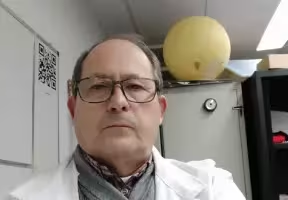
Astrobiology and theories on the origin of the universe
Astrobiology, that fascinating intersection of life science and space exploration, seeks to uncover truths nestled among the stars. This multidisciplinary field weaves together biology, geology, astrophysics, and chemistry in its quest to unravel the origin of the universe.
The Intricate Fabric of Astrobiology
Astrobiology embraces the idea that life is not unique to Earth, but a cosmic event. This scientific discipline seeks to discern the origins of life, examine the possibility of extraterrestrial organisms, and explore future implications for humanity’s role in the universe.
The Journey from Microbes to Meteors
At the heart of astrobiology is the examination of life’s existence beyond our planet. An astrobiologist studies microbial life forms in extreme habitats on Earth to understand how life might exist in the harsh conditions of space.
Panspermia: Spreading Life across the Universe
Astrobiology offers various theories on how life traversed galaxies. Panspermia proposes that life-bearing particles such as bacteria and viruses hitch rides on asteroids, comets or meteors, seeding life across different celestial bodies.
Theories Exploring the Origin of the Universe
Astrobiology meshes seamlessly with cosmogony — the study of the universe’s inception. Out of this synergy emerge theories designed to answer the age-old question: “How did the universe begin?”
The Big Bang Theory: The Dawn of Time
Perhaps the most well-known theory on the birth of the universe, the Big Bang Theory posits the universe began from an extremely dense and hot state, expanding rapidly to create matter, energy, space, and time.
Quantum Fluctuation: The Seed of Existence
In this theory, the universe is the result of a chance quantum fluctuation in a timeless, spaceless void. Such a cosmic vacuum gives rise to particle-antiparticle pairs, setting the stage for the manifestation of an entire universe.
Multiverse: A Web of Universes
This theory suggests our universe is one of many, collectively forming a multiverse. Each universe within this network might have its distinct physical laws and properties.
Pioneering Discoveries of Astrobiology
Through years of relentless research and exploration, astrobiology has contributed significantly to our understanding of universe’s origins.
Evidence of Ancient Life on Mars
NASA’s Perseverance Rover recently located potential biosignatures in Martian rocks, hinting at the possibility that Mars once hosted microbial life.
Complex Organic Molecules in Space
Astrobiologists discovered complex organic molecules - the building blocks of life - in comets, asteroids and interstellar clouds, reinforcing the concept of panspermia.
Exoplanets in the Habitable Zone
Numerous exoplanets orbiting within their stars’ ‘Goldilocks Zone’ – the region where conditions could allow for the existence of liquid water – have been identified, amplifying the search for extraterrestrial life.
Remember: Science is woven from threads of curiosity, diligence, and patience. The secrets of our universe may seem enigmatic, but as we advance, so will our understanding. As an astrobiology enthusiast, keep exploring, and take your curiosity on a star-studded journey across galaxies.
Frequently Asked Questions
Q: What is astrobiology? A: Astrobiology is the scientific study of life in the universe, combining aspects of astronomy, biology and geology.
Q: What is the Big Bang Theory? A: The Big Bang Theory is a cosmological model that posits the universe began from an extremely dense and hot state, expanding rapidly to form space, time, matter and energy.
Q: What is panspermia? A: Panspermia suggests that life existed on another planet and was transported to Earth on space dust, meteorites or comets.
Article updated at Monday, October 7, 2024
